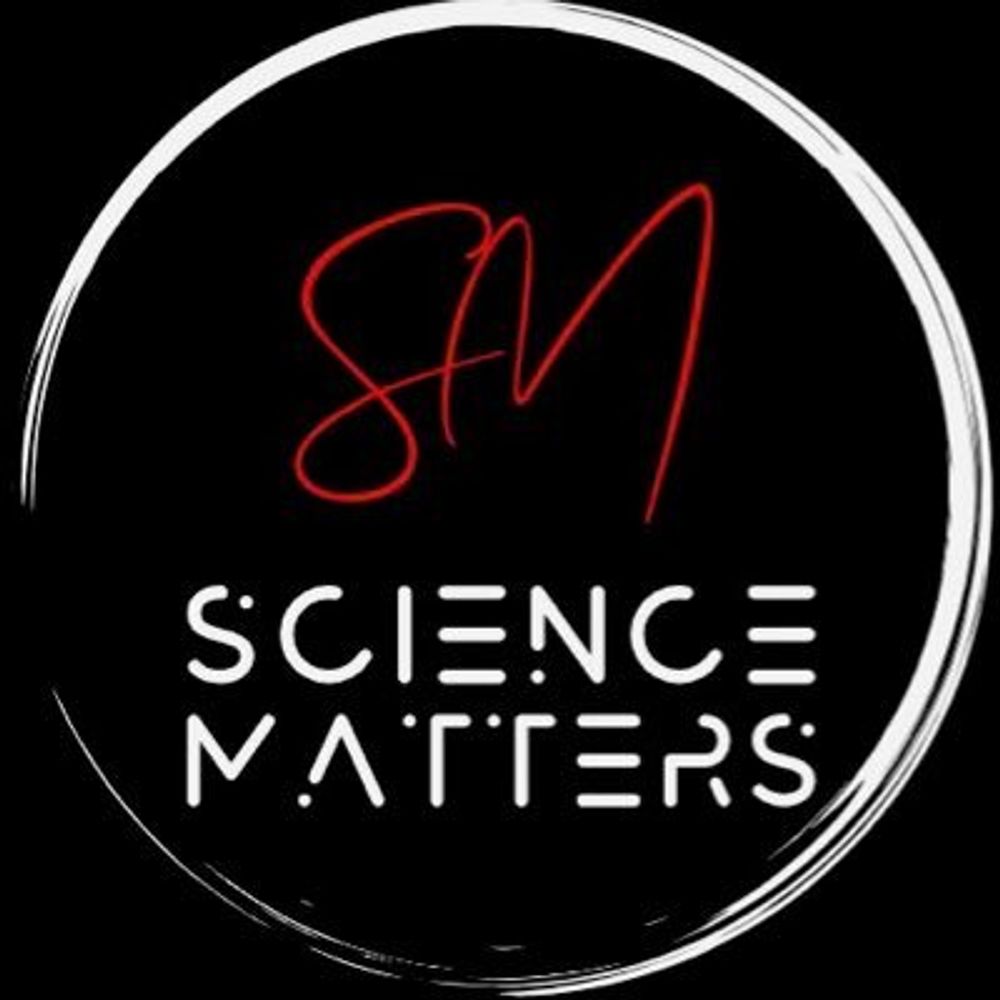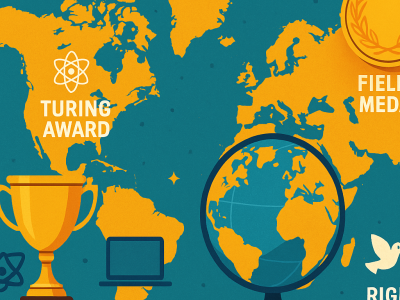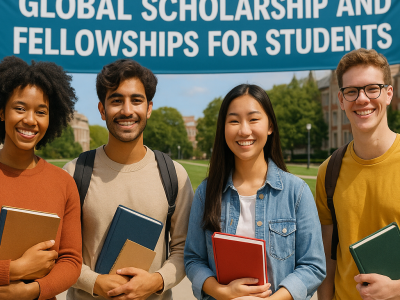What do Nobel laureate Malala Yousafzai, former Australian Prime Minister Julia Gillard, and climate scientist Dr. Katharine Hayhoe have in common? Each began their journey to global impact through prestigious academic fellowships. For researchers and academics, such programmes are more than funding. They are catalysts for innovation, collaboration, and career advancement.
In 2023, over 50,000 professionals secured postgraduate funding through competitive fellowships worldwide. Yet many early-career researchers remain unaware of these opportunities or how to strategically pursue them. This article analyses 15 elite fellowships for master’s students, offering actionable insights to help scientists, doctors, and academics secure their place among tomorrow’s leaders.
Global opportunities: Fellowships transcending borders
The Rhodes Scholarship, established in 1903, remains one of the most selective programmes globally, accepting just 3.7% of applicants annually. It funds postgraduate studies at the University of Oxford, providing access to research facilities like the Jenner Institute, where the Oxford-AstraZeneca COVID-19 vaccine was developed. Successful candidates typically demonstrate academic excellence (minimum first-class honours) alongside leadership in community service or research initiatives.
Similarly, the Fulbright Programme operates across 160 countries, enabling 4,000 scholars annually to conduct research or teach abroad. A 2022 survey found 68% of Fulbright alumni secured senior roles in academia or government within five years of completing their studies. The programme prioritises projects fostering cross-cultural exchange, such as public health research in low-income regions or climate change mitigation strategies.
For interdisciplinary researchers, Erasmus Mundus Joint Master Degrees (EMJMD) offer unique advantages. Students rotate between universities in multiple countries, gaining access to diverse methodologies. The Marine Environment programme, hosted by universities in France, Spain, and Norway, has produced 12 patented technologies since 2018.
Regional powerhouses: Targeted funding networks
The UK’s Chevening Scholarship, funded by the Foreign Office, supports 1,500 master’s students annually from non-Commonwealth nations. Its 2024 cohort includes researchers from 140 countries, with 43% focusing on STEM fields. Applicants must showcase how their work aligns with the UK’s International Research Strategy, such as developing AI ethics frameworks or sustainable agriculture models.
Germany’s DAAD scholarships offer €1,200 monthly stipends plus travel grants, particularly for projects addressing Germany’s National Hydrogen Strategy. Engineering applicants to institutions like RWTH Aachen University receive priority if their work addresses renewable energy storage—a sector projected to grow by 14% annually through 2030.
In Asia, the Schwarzman Scholars Programme at Tsinghua University has become a hub for geopolitical research. Its 2023 report on AI governance influenced policy drafts in 17 countries. While no Chinese language skills are required, successful applicants often propose projects analysing China’s Belt and Road Initiative or semiconductor diplomacy.
Specialised programmes: Niche meets impact
The Joint Japan/World Bank Graduate Scholarship targets development economists and public health researchers from low-income nations. Funded projects must directly address UN Sustainable Development Goals, with 80% of recipients returning to their home countries to implement reforms. The 2025 cycle prioritises applications related to pandemic preparedness and digital infrastructure.
For African researchers under 30, the Mandela Rhodes Scholarship combines funding with leadership training. Its alumni network has launched 140 tech startups across the continent, including agritech platforms improving yields for 2 million smallholder farmers. The programme seeks candidates whose research addresses Africa’s urbanisation challenges or renewable energy adoption barriers.
ETH Zurich’s Excellence Scholarship, offering 60 CHF 12,000 stipends annually, remains a top choice for computer scientists and engineers. Recipients gain access to Switzerland’s Quantum Initiative, where researchers recently achieved a 1,000-qubit quantum computing milestone.
Strategic applications: A four-step framework
Step 1: Align research with institutional priorities
The Gates Cambridge Scholarship rejects 98% of applicants annually, often due to misaligned proposals. Successful applications directly reference the university’s research priorities, such as CRISPR gene-editing ethics or decarbonising aviation. Candidates should consult departmental websites and cite specific faculty members whose work complements their own.
Step 2: Quantify potential impact
Fellowship panels increasingly demand measurable outcomes. A DAAD applicant studying battery tech might state: “This research aims to increase lithium-ion energy density by 20%, potentially extending EV range to 800 km per charge.” Such specificity outperforms vague claims about “addressing climate change”.
Step 3: Leverage institutional partnerships
The Weidenfeld-Hoffmann Scholarship at Oxford prioritises candidates from developing economies partnering with local NGOs. A 2023 awardee from Indonesia collaborated with the Borneo Nature Foundation to design AI-powered deforestation tracking systems, securing post-study implementation funding.
Step 4: Master the interview calculus
Knight-Hennessy Scholars at Stanford face panel interviews assessing problem-solving under pressure. A recent prompt asked candidates to design a global vaccine distribution model for future pandemics in 10 minutes. Practising with tools like the McKinsey Problem Solving Game improves performance.
Emerging trends: The future of research funding
The 2023 Global Fellowship Impact Report revealed three shifts: 22% of programmes now require AI ethics statements for tech-related proposals; 35% allocate funds for open-access publishing mandates; and 60% prioritise candidates from climate-vulnerable nations for environmental research.
Australia Awards Scholarships exemplify this trend, dedicating 40% of 2024 slots to Pacific Island researchers studying coastal erosion mitigation. Their “boomerang funding” model requires recipients to return home for at least two years, ensuring localised knowledge transfer.
Final considerations: Avoiding common pitfalls
A 2022 analysis of 1,000 rejected applications found 73% failed to explain how the fellowship fit their long-term goals. The Marshall Scholarship requires a 500-word “Career Impact Statement”—successful candidates often map their research to specific UN Sustainable Development Goal targets.
Language proficiency remains a stumbling block. While the Clarendon Fund at Oxford doesn’t mandate IELTS scores upfront, candidates must demonstrate C1-level English during interviews. Non-native speakers should consider platforms like Elsa Speak for accent reduction training.
Conclusion
As laboratories worldwide race to solve crises from antibiotic resistance to space debris, fellowships provide more than funding—they offer networks amplifying individual impact. Which programme will propel your research onto the global stage?
For ongoing updates on funding deadlines and academic career strategies, subscribe to The Science Matters newsletter.







